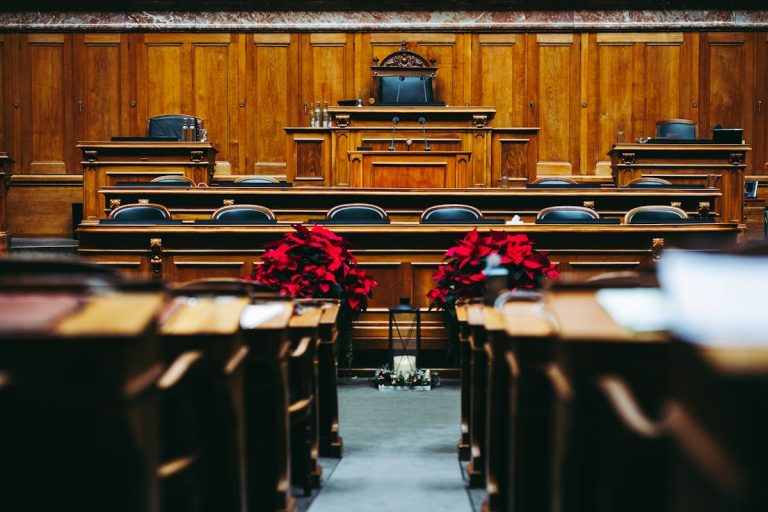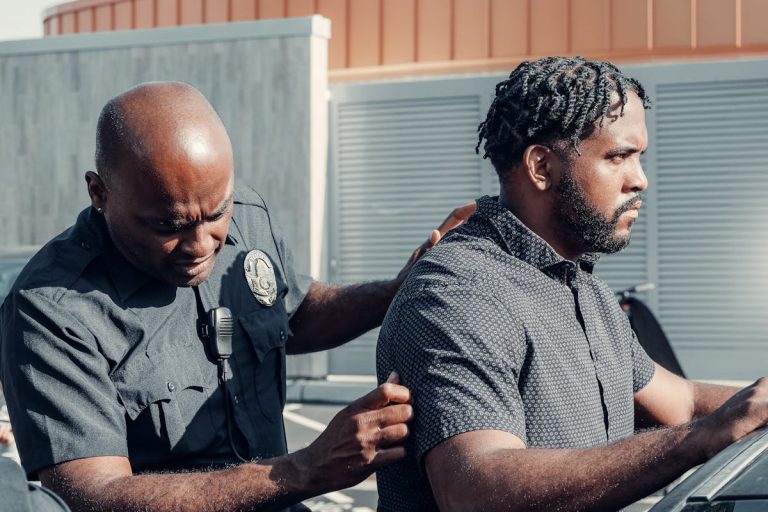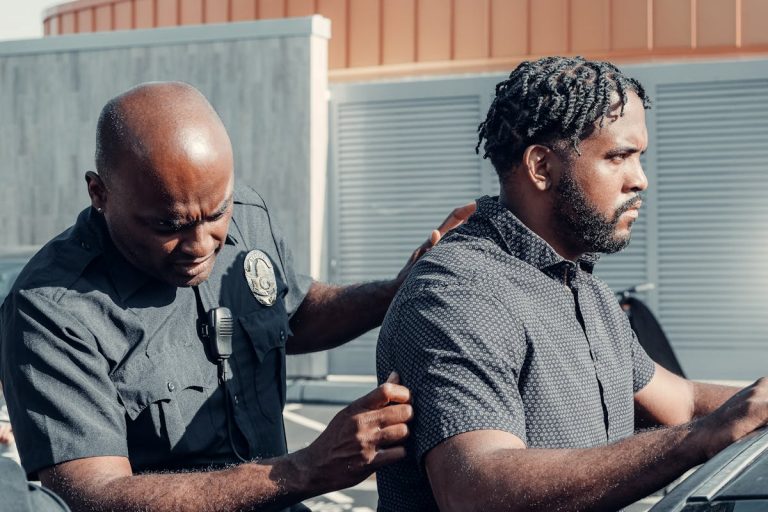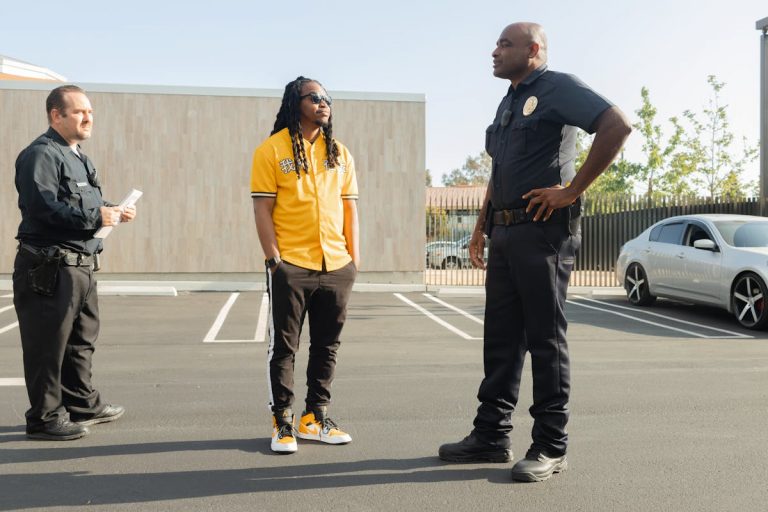The contentious issue of firearm ownership for felons is uniquely nuanced within the state of Arizona. While federal law generally prohibits felons from possessing firearms, Arizona law may allow for the restoration of these rights post-sentence, with varying conditions based on the nature of the felony committed. However, the process is complex and often necessitates legal guidance. How does one navigate these legal intricacies? And what implications does this have on public safety, recidivism rates, and the broader discourse on gun control? These are questions warranting further exploration.
Understanding Arizona Gun Laws
Arizona’s gun laws, steeped in the state’s long-held values of individual liberty, are among the most lenient in the United States. The state respects gun rights and legal eligibility for firearm possession, with the major premise being that an individual has the right to protect himself, his family, and his property.
The state’s statutes do not require gun owners to register their firearms, nor do they need a permit to purchase. Open carry is also permitted without a license for persons aged 18 and above, while concealed carry requires no permit for those aged 21 and above.
However, despite the general leniency, there are defined restrictions. Legal eligibility to own a firearm in Arizona is contingent on certain criteria. Individuals convicted of a felony, or those who are on probation for domestic violence, are prohibited from owning or possessing firearms.
This broad and liberal approach to gun rights reflects Arizona’s commitment to uphold the Second Amendment. Yet, it also underlines the necessity for responsible gun ownership and adherence to legal stipulations, particularly in relation to those with felony convictions.
Federal Firearm Regulations for Felons
The reach of the United States’ federal law extends to the issue of gun ownership for felons, imposing further restrictions that supersede state laws. Federal statutes draw a clear line in the sand, preventing individuals with felony convictions from possessing firearms. The Gun Control Act of 1968, a central piece of legislation in this area, expressly prohibits felons from owning guns.
The Act applies to all states, meaning that while regulations may vary at the state level, federal law provides a consistent baseline of gun restrictions. This underscores the importance of understanding the impact of a felony conviction on an individual’s right to bear arms in any part of the country.
These federal restrictions are not limited to physical possession of firearms but extend to the receipt, shipping, or transportation of firearms or ammunition. Violation of these regulations can result in severe penalties, including imprisonment. However, it’s worth noting that federal law does provide avenues for felons to restore their firearm rights, subject to certain conditions and processes.
Felony Convictions and Gun Rights
Understanding Arizona’s laws regarding gun ownership for convicted felons is essential to explore the impact of felony convictions on an individual’s firearm rights. The state’s provisions can greatly influence a felon’s ability to own a firearm legally. We will also examine the process, if any, that allows these rights to be restored following a felony conviction.
Arizona’s Gun Ownership Laws
While some may assume that a felony conviction universally forbids gun ownership, the specifics of the law vary from state to state. In Arizona, the state laws regarding gun ownership are singularly unique, nuanced, and complex.
In this state, the legal eligibility for gun ownership is not necessarily lost due to a felony conviction. Arizona Revised Statute 13-3101 et seq. allows for the restoration of firearm rights under certain conditions. One such condition is that a person must wait a set period after completing their probation or being discharged from prison before they can apply for rights restoration.
Another significant point to note is that not all felonies are treated equally. Arizona law distinguishes between “dangerous” and “non-dangerous” offenses. A dangerous offense is one involving the use or exhibition of a deadly weapon. For those convicted of a dangerous offense, the restoration of gun ownership rights is more stringent and less likely.
Understanding the specificity of Arizona’s gun ownership laws is essential. Though a felony conviction can impact one’s rights, it does not necessarily mean a blanket prohibition on gun ownership. As always, individuals are advised to consult with legal counsel to fully understand their rights and potential remedies.
Impact of Felony Convictions
A considerable majority of felony convictions in Arizona carry with them severe repercussions that extend beyond the confines of the criminal justice system. These implications go far beyond the immediate penalties of incarceration and probation, and may include hindrances in employment, housing, and educational opportunities. Such barriers can greatly hamper a felon’s ability to reintegrate into society and lead a law-abiding life.
One of the most profound impacts of a felony conviction is the curtailment of certain civil liberties, particularly the right to own a firearm. This limitation is an aspect of public safety measures designed to reduce the risk of future violent incidents. However, its impact can be far-reaching, affecting a felon’s sense of personal security and potentially their livelihood, especially in rural areas where hunting and farming are prevalent.
In an effort to mitigate these challenges, rehabilitation programs and community resources are fundamental. They serve to provide felons with the necessary tools to rebuild their lives, fostering a sense of responsibility and an understanding of societal norms. Yet, the lingering impacts of felony convictions, including the restriction on firearm ownership, often present enduring challenges that these programs alone cannot fully address.
Restoring Firearm Rights
Despite the severe restrictions imposed on felons, Arizona law provides a pathway to restoring firearm rights. This restoration process involves a number of steps, each with its own eligibility criteria. The process commences with a thorough evaluation of the individual’s criminal record and personal circumstances.
The application procedures require the submission of legal documentation, which may include court records and evidence of completed rehabilitation programs. These programs aim to foster personal development and reintegration into society, demonstrating the individual’s commitment to lawful conduct. Community support is another vital factor considered in the restoration process. Recommendations or character references from community members can greatly influence the outcome.
Once the application is submitted, waiting periods apply. These periods allow the court sufficient time to review the application thoroughly. During this time, the applicant must demonstrate a continued commitment to firearm safety and adherence to all laws.
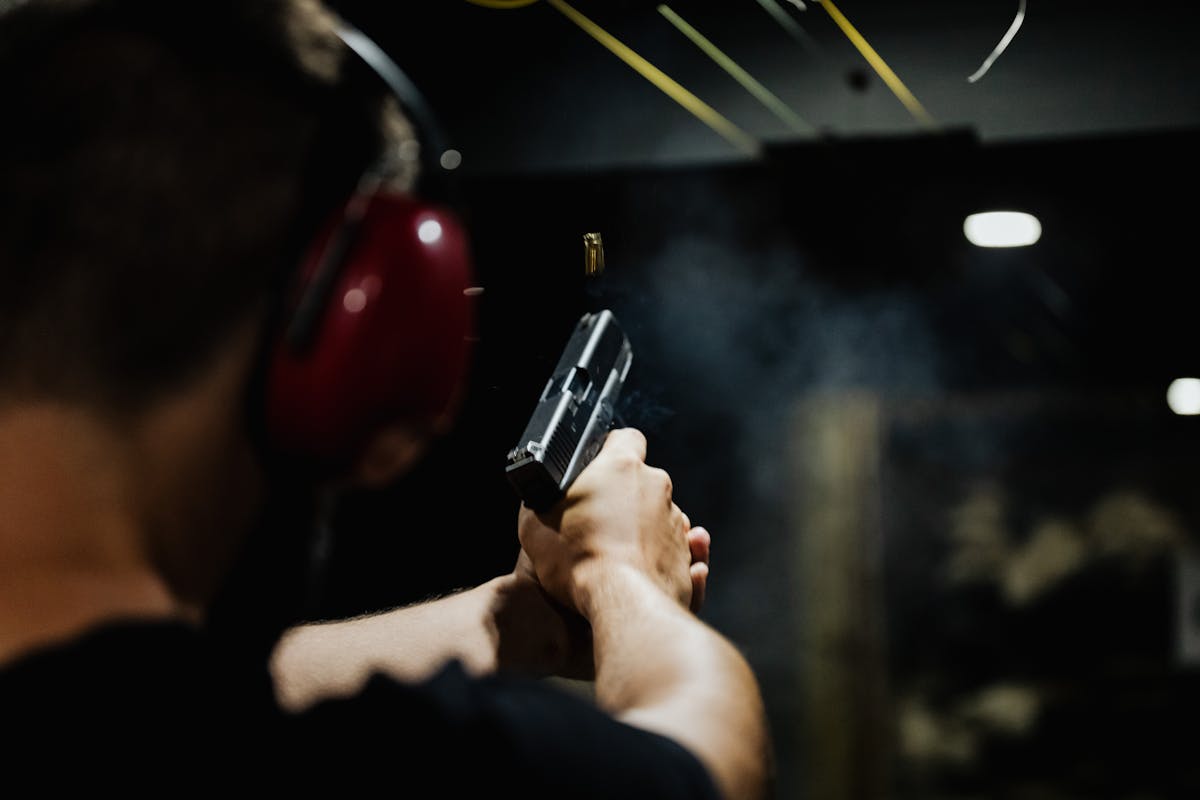
Restoring Firearm Rights in Arizona
Regaining the right to own a firearm in Arizona, a privilege lost by many due to felony convictions, is a complex process that necessitates a thorough understanding of state laws. The path to gun rights restoration is governed by strict legal eligibility criteria, which must be met in order to reclaim this constitutional right.
To begin, a felon must have completed all terms of their sentence, including probation or parole, and have paid any fines or restitution ordered by the court. A waiting period also applies; typically, ten years for a dangerous offense, seven years for a serious offense, and two years for any other felony.
Additionally, the applicant must not have been convicted of another felony during the waiting period. These criteria reflect the state’s commitment to ensuring only responsible, law-abiding citizens regain their firearm rights.
The process involves petitioning the court that pronounced the conviction and demonstrating that one’s civic rights should be restored. Legal counsel is highly recommended as steering through this process can be challenging.
Achieving gun rights restoration in Arizona is no easy task, but with a clear understanding of the legal eligibility criteria, felons can make strides towards reclaiming their rights.
Case Studies of Felons and Firearms
Through the lens of real-life experiences, a closer examination of felons interacting with firearms can provide valuable insights. Case studies reveal that upon release, some felons, especially those who have participated in reentry programs, make conscious efforts to abide by the law, which includes avoiding any interaction with firearms.
One such example is of a former felon who, after serving his sentence, enrolled in a reentry program focused on societal reintegration. The program emphasized firearm safety and the potential legal consequences of owning a gun as a felon. He internalized these lessons, always ensuring that he was not in possession or in close proximity of firearms.
Another case study involves a felon who, despite not participating in any formal reentry programs, sought out information about firearm safety and laws. He took the initiative to educate himself, understanding the significance of avoiding firearms due to his felon status.
These cases underscore the importance of reentry programs and self-education in informing felons about firearm safety and laws. However, they do not represent all felons’ experiences, which are often influenced by numerous factors such as their environment, support systems, and individual characteristics.
Legal Consequences for Violations
Understanding Arizona’s laws on gun ownership for felons is vital, particularly the penalties that come with non-compliance. A violation can lead to severe repercussions, hence, it is essential to know how to navigate the legal system. Let’s now examine these laws, the potential consequences for breaking them, and the legal avenues available.
Arizona’s Gun Ownership Laws
When discussing Arizona’s gun ownership laws, it’s essential to acknowledge the legal consequences for violations. These laws are built upon legal definitions that determine the parameters of gun ownership and highlight conditions under which such rights may be forfeited.
In Arizona, the legal definition of a firearm includes any device designed to expel a projectile by the action of an explosion, expanding gas or other means. This definition encompasses handguns, rifles, shotguns, and more. Gun ownership, as per Arizona law, is a right granted to individuals who are 18 years of age or older, barring exceptions such as convicted felons.
Violations of these gun ownership laws can lead to serious legal consequences. For example, possession of a firearm by a prohibited possessor, such as a convicted felon, can result in felony charges. Additionally, misuse of a firearm, regardless of the owner’s legal status, can also lead to criminal charges.
Understanding these legal definitions and the consequences for violations is important for any current or prospective gun owner in Arizona. It’s also vital that these laws are continuously reviewed and updated to reflect societal values and maintain public safety.
Penalties for Non-Compliance
A significant number of legal penalties await those who choose to disregard Arizona’s gun ownership laws. These laws, designed to regulate firearms and guarantee public safety, carry serious non-compliance repercussions for offenders, particularly convicted felons.
In Arizona, the gun ownership restrictions are clearly defined, and failure to adhere to these can result in severe penalties. Felons found in possession of a firearm may face prosecution under state law, federal law, or both. Convictions for such violations typically carry a prison sentence, with the duration varying depending on the type and number of previous convictions. The gravity of the punishment underscores the state’s commitment to enforcing its gun control measures.
Further penalties may include hefty fines, probation, community service, and mandatory participation in intervention programs. In addition, convicted felons caught violating gun ownership restrictions can face enhanced sentencing, and may also have their rights to firearm ownership permanently revoked.
Navigating Legal Repercussions
The repercussions for violating Arizona’s gun laws, especially for felons, are not limited to immediate punitive measures. The legal consequences can extend far beyond the initial penalties, often leading to additional incarceration, fines, and even the permanent loss of certain civil rights.
Navigating these repercussions requires a thorough understanding of the law, as well as access to relevant resources and community support. Legal aid organizations and public defenders can provide valuable assistance in these matters. They offer guidance on how to manage the legal process, from the initial charges through potential appeals.
Moreover, community support plays an essential role in the aftermath of legal violations. Community organizations can help individuals reintegrate into society, providing necessary resources such as job placement services, counseling, and housing assistance. Such support can greatly mitigate the long-term impacts of legal repercussions.
Seeking Legal Advice in Arizona
Steering through the legal landscape concerning firearm ownership for felons in Arizona can be complex. Legal representation is essential in traversing these complexities, especially when it comes to rights restoration and firearm eligibility. A deep understanding of one’s criminal records and the impact it has on their legal rights is imperative.
An experienced legal counsel can guide felons through the court processes, educating them about their rights and the necessary steps for rights restoration. Advocacy groups can also aid in this process, providing valuable resources and support. Attorney assistance is critical in ensuring that all the necessary documentation is filled correctly and that the legalities are adhered to.
Keeping track of legal reforms is another aspect where legal advice comes into play, as these can considerably affect a felon’s firearm eligibility. A lawyer can help keep felons informed about these changes and how they might impact their case.
Frequently Asked Questions
Can a Felons Family Member Own a Firearm in the Same Residence in Arizona?
In Arizona, a felon’s family member may legally own a firearm under shared residence regulations. However, it’s vital to prevent the felon’s access to the weapon, respecting family member rights and state laws.
How Does Arizona Law Treat Felons From Other States Seeking Gun Ownership?
Arizona law generally prohibits gun ownership for felons, regardless of origin. However, interstate firearm laws can be complex. Felon rights advocacy groups can provide guidance on individual cases and potential legal avenues for restoration of rights.
Are There Different Rules for Non-Violent Felons Seeking Gun Ownership in Arizona?
In Arizona, non-violent felons can potentially regain gun ownership rights. However, this requires a set-aside judgment or absolute discharge from the Department of Corrections, and two years without further legal incidents post-discharge.
Does Owning a Firearm Affect Employment Opportunities for Felons in Arizona?
Owning a firearm may create employment barriers for felons in Arizona, as some employers may view this as a risk. However, firearm rights are subject to individual circumstances and potential employer tolerance levels.
Can a Felon in Arizona Own Other Types of Weapons Aside From Guns?
In Arizona, felons are generally prohibited from owning firearms. However, they may be able to own other types of weapons. Legal alternatives could include certain types of knives or non-lethal self-defense tools.

